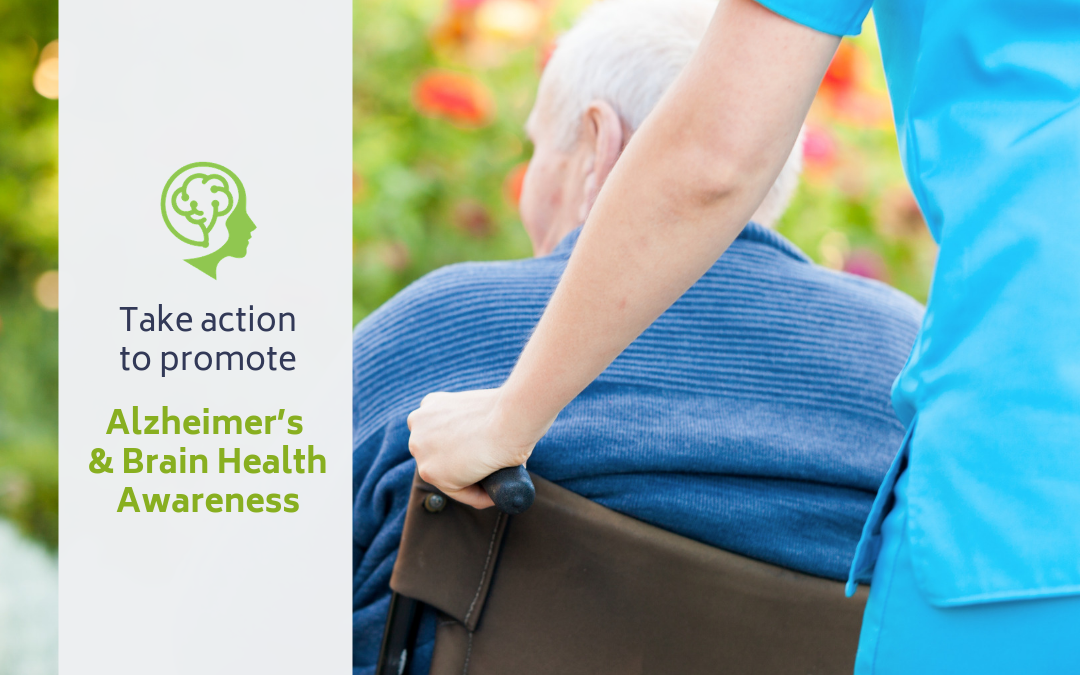Join the Fight for Alzheimer’s Awareness

The Alzheimer’s Association has declared June Alzheimer’s and Brain Awareness Month. It’s a perfect time to open the conversation about Alzheimer’s disease and other dementias.
The Alzheimer’s Association has declared June Alzheimer’s and Brain Awareness Month. It’s a perfect time to open the conversation about Alzheimer’s disease and other dementias.
This month, Caregiver Training Advisor, Andrew Chacho explores the most common symptoms of Alzheimer’s and how you can help your caregivers be intheknow !

Drew says . . .
According to the Alzheimer’s Association, there are an estimated 5.5 million people to date living with Alzheimer’s in the United States alone. Further, an estimated 66% of Americans living with this disease are women. This is a disease that impacts nearly all of our lives in some respect, and cannot go unnoticed or overlooked.
This month, we want to focus on recognizing the warning signs and early symptoms. Although there is no current cure, early intervention can aid in slowing the progression of the disease.
What are the most common symptoms of Alzheimer’s?
- Memory loss that disrupts daily life
- Difficulty completing tasks at leisure, around the house, or at work
- Confusion with time or place
- Difficulty understanding visual images or spatial relationships
- New problems with holding or maintaining conversations
- Decreased judgment or decision-making abilities
- Withdrawal from social activities or work projects
- Changes in mood or personality
Prepare your caregivers to work with clients suffering from Alzheimer’s
The best way to prepare your caregivers for working with clients with Alzheimer’s is to educate them! If they aren’t familiar with the disease or effective ways of interacting with their clients, they may easily become frustrated. Encourage your caregivers to be understanding and patient.
- PRO TIP! Suggest caregivers ask their clients about long term memories. While some people with Alzheimer’s may not remember what they had for breakfast this morning, they are likely to recall their military service, wedding day, or even the name of a childhood friend. Being able to reminiscence about these memories can bring great comfort to someone with Alzheimer’s disease.
And as always, remind your caregivers to report any warning signs they notice in their day-to-day work with their clients.
Is your team intheknow?
Are your caregivers prepared to help clients who are at risk for or suffering from Alzheimer’s dementia? Now you can find out!
Download the Alzheimer’s Disease Caregiver Challenge!

Inside, you’ll find
A thought-provoking quiz for caregivers.
Tips on recognizing the signs of AD.
And, a fun way to improve communication with clients through music!





